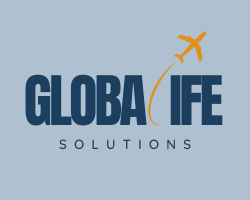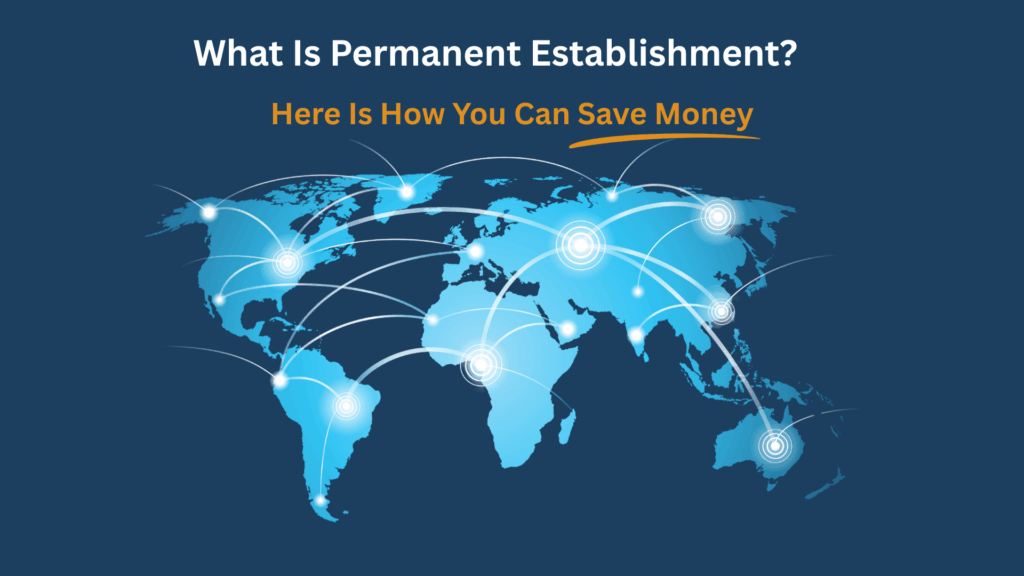Understanding permanent establishment: What global professionals need to know
In today’s increasingly borderless economy, more professionals are choosing to live and work in multiple countries, building businesses that transcend national borders. Whether you’re based in Bali, Lisbon, or Medellín, operating as a location-independent entrepreneur offers incredible freedom. However, this freedom also comes with tax and legal responsibilities that many overlook.
One of the most important yet often misunderstood concepts for global entrepreneurs is permanent establishment (PE).
What is a PE?
PE is a tax concept used by countries to determine if a foreign company is conducting sufficient business locally to warrant taxing a portion of its profits. It serves as the legal mechanism that enables a country to say:
“You may not be incorporated here, but you’re doing enough business on our soil to owe us tax.”
While the technical definition varies from country to country, it often revolves around a few core principles that are usually found in double tax treaties (DTTs) and shaped by the OECD Model Tax Convention.
Common ways you might trigger PE
Even without a registered entity in a foreign country, specific actions might lead a country to claim that your business has created a “taxable presence.” These triggers include:
- Having a fixed place of business (like an office, studio, or even a long-term coworking desk).
- Hiring a local team member or contractor with the authority to close deals.
- Spending extended periods of time in one country while running core business operations.
- Participating in a local accelerator or co-working community where your business is visibly active.
- Managing your company from a foreign location, especially if strategic decisions are made there.
Example: Let’s say you have a company registered in Estonia but spend 9 months of the fiscal year in Portugal working from a coworking space and handling all your business operations there. Even though the company is foreign, Portugal may claim that you have created a PE and demand corporate taxes on profits.
What does this mean for your international business
For the modern entrepreneur, especially those with a multi-hub lifestyle, PE rules can be both a risk and an opportunity.
- The danger lies in unintentionally triggering PE in a high-tax jurisdiction and facing unexpected corporate tax bills, fines, or compliance burdens.
- The opportunity lies in strategically structuring your operations to reduce risk, optimize global tax positioning, and ensure full legal compliance.
Using structure to your advantage
One of the smartest moves for location-independent professionals is to establish a clear separation between:
- Where your company is incorporated.
- Where you live and work as an individual.
This enables flexible international structuring that can significantly lessen your global tax burden.
Here’s how this plays out in real life:
Efficient separation of corporate and personal tax residence. Suppose your company is legally incorporated in a low corporate tax country (e.g., the UAE). At the same time, as the owner, you are a tax resident of a country that offers favorable treatment for foreign income (e.g., Portugal under the NHR scheme or Malta if structured well).
As long as your company doesn’t conduct core operations in your personal tax residence country, PE will not trigger where you live. Considering it is independently managed in its place of incorporation, you can enjoy:
- Low corporate tax at the company level.
- Tax exemptions or deferrals on foreign dividends or salaries.
- Better cash flow for reinvestment or global operations.
- Key strategic benefits.
When done right, a location-independent setup offers:
✅ Global tax optimization: Efficiently designed structures can significantly lower corporate and personal taxes.
✅ Legal compliance: Understanding PE rules helps avoid audits, penalties, and reputational risk.
✅ Strategic flexibility: You can shift hubs seasonally, participate in international markets, or hire globally without creating unintended tax ties.
✅ Personal freedom: With proper planning, you maintain your lifestyle without sacrificing financial clarity or risking tax issues.
Final thoughts: Stay informed, stay compliant, stay agile.
The concept of PE is one of the most critical yet frequently overlooked aspects of global entrepreneurship.
As location-independent living becomes more prevalent, tax authorities are adapting and intensifying their enforcement of PE, especially for remote-first companies and digital service providers. However, with proper awareness, structure, and strategy, location-independent professionals can operate effectively globally, minimize tax exposure, and retain full control over their business journeys.
The key is to be intentional! Think of your lifestyle as a business model, embracing every aspect rather than viewing it as a simple travel itinerary.

